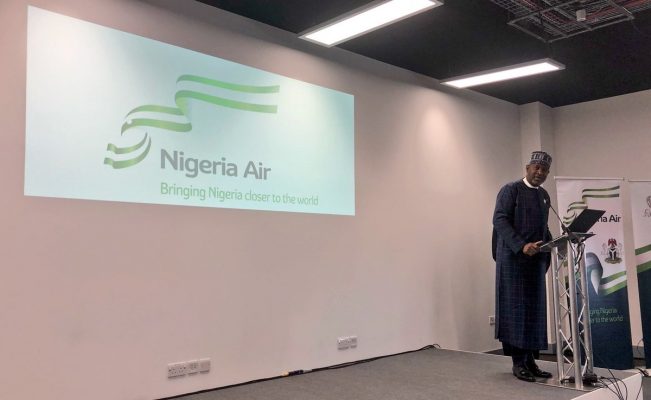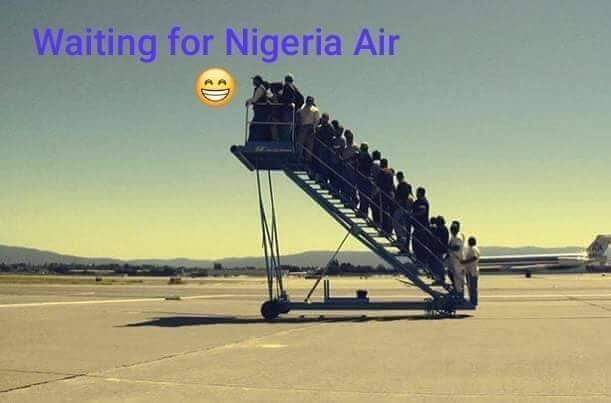More facts emerged weekend on additional angles of fears shrouding the planned take off of Nigeria Air come end of the year.
The apprehension rose from the apparent veiled way and manner the federal government through the Minister of State for Aviation, Capt. Hadi Sirika is going about the emergence of new national carrier especially on the shareholding arrangements’ of which the federal government said is holding only five per cent valued at $300m.
However, if five per cent stands for $300m, it means that the total value of shares in the company will be $6bn and up till now, no known investor has been sighted nor declared his or her interest.
Besides, whereas the federal government is yet to open up on sources and time of arrival of the first set of five aircrafts for operations, there has not been any known move to either recruit workers or even get any head office and branch offices either.
More confusion to the government’s plan in holding only five percent share runs contrary to percentage shares of other known national carriers where governments have stakes.
Investigations by Business Hilights Intelligence Unit (BHIU) revealed that share holding arrangements of other national carriers in Africa have different outlooks which are in no way closer to what the federal government is structuring.
For example, whereas Kenya Airways has a fleet size of 40, Kenyan government owns 48.9% shareholding.
Ethiopian Airways is 100 per cent owned by government with not less than 100 fleet size. The same structure is playing out in Royal Air Maroc which is 100 per cent owned by government of Morocco with about 56 fleet size in operation.

In South Africa, South African Airways is 100 per cent owned by Government with a fleet size of 47 as Rwandair is 99 per cent government owned with 12 fleet size.
BHIU also gathered that
Tunisair is 74 per cent owned by the Tunisian government and it runs on a 29 fleet size.
Egypt Air is 100 per cent owned by the Government of Egypt with about 54 fleet size, but Nigeria Air, according to the Minister of State for Aviation, Capt. Hadi Sirika currently has no fleet size and government who is currently driving the entire plan alone said it has only five per cent share holding.
For the fact the national carrier is coming as a private sector driven, observers’ query why government is not adopting any of the existing airlines in Nigeria?
Besides, if it’s private investment, why would the owner of mere five percent equity share be the one to determine the name, logo and other trademarks of the airline?
The Minister had been struggling to explain a rather more complicated market entry strategy for Nigeria Air. First, he said it will be private sector driven. Later, he smuggled in the concept of government holding just five per cent equity share.
One of the narratives from the same minister is that whereas government will vote the initial takeoff capital of about $300m, the government is not funding the entire project, but will be offering the startup capital in the form of Viability Gap Funding (VGF).
An official of the ministry had corroborated the Minister saying “Once the strategic investor is in place, they will be expecting to build on the initial investment made by government. The Outline Business Case (OBC) recently approved by the Infrastructure Concession Regulatory Commission (ICRC) and currently before the Federal Executive Council for approval suggests that there is a need to start the business in order to attract credible investors.”
Otherwise, the $300million is the funding requirement for the next three years, beginning 2018 ($55million), 2019 ($100million), and 2020 ($145million).
Several industry experts who spoke to our correspondents on Sunday averred that the way and manner government is going about the funding leaves much to desired, stressing that the entire funding arrangements may remain blurred in the faces of credible investors who may be forced to continue maintaining their distance on the deal after all.









